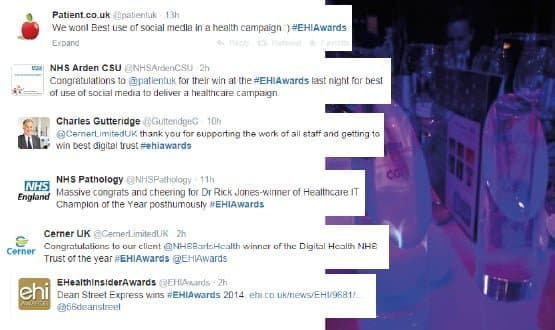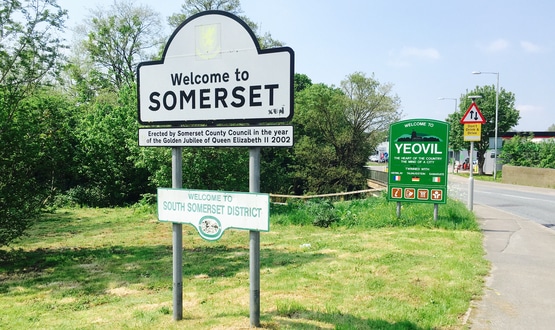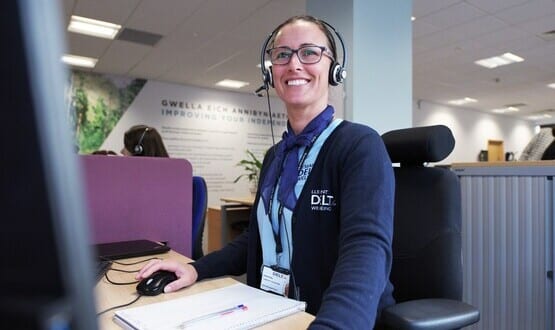Widdicombe Fair
- 10 October 2014

It takes a lot of people to fill Camden’s Roundhouse, a former engine turning shed turned iconic theatre and music venue. But this year, there were a lot of people to get into the black tie presentation for the EHI Awards 2014 in association with CGI.
As Jon Hoeksma, the editor of EHI noted, there were just under 300 entries for this year’s awards, in 14 categories, counting the Healthcare IT Champion of the Year and the overall winner.
Just over 60 projects and individuals were still in the running following a judging day at Reading’s Madjeski stadium in July; and some 660 people turned up on the night, to “celebrate the brightest and best of NHS IT.”
“Too often, we hear that the NHS is not good at IT; to the point where it is somehow pointless to even try. That is not correct,” Hoeksma added.
Referencing Brooks Newmark, the Conservative MP who sent an intimate picture to a Mirror hack running a sting, he went on: “It’s true that politicians can struggle with even simple IT – such as sending a selfie of themselves to a young intern.
“So perhaps it’s no wonder that technology looks like a bear-trap – or should that be a honey trap? – to them. But lots of organisations are using IT in imaginative ways to improve health services.
“What we need to do now is to share that experience and evidence base with others, and to make sure we are willing to learn from both successes and interesting failures.”
Patient safety, sharing information with patients, rising star, business efficiency
The first winner of the night, University Hospitals Birmingham NHS Foundation Trust, showed how IT can be used to improve care for patients; winning the ‘best use of IT to promote patient safety’ category with its Prescribing Information and Communications System (PLICS).
This started out as an e-prescribing system, but now takes in vital signs monitoring and other assessments, while feeding clinical dashboards and decision support mechanisms.
Accepting the award were Deborah McKee, Dr Tanya Pankhurst, Lina Stezhka and Sean Warden. “We are absolutely thrilled and we can’t believe that we’ve won,” McKee said.
“The system was first developed in 1999 by renal clinicians and has meta-morphed to the solution we have today. We got clinical decision support tool that helps us make the right decisions.”
University Hospitals Birmingham found itself back on stage much later in the evening, when MyHealth@QEHB won the ‘best use of technology to share information with patients and carers.
MyHealth@QEHB is a portal that enables patients in long-term care to access their health record, upload information to it, share care and treatment plans and interact with other patients.
Waseem Ali, Kasmyn Chen, Jim Williams, Sally Powell, Dean Grinham, Irena Bengaj and Daniel Ray, went up on stage this time, and afterwards said they were also “amazed” to have won.
“My mum had breast cancer and had never turned on her laptop before,” Ray said. “So I built this for her. She can get her test results, letters and information online – which is a huge help for her.
“We have got 6,000 patients using the system, and all of them can upload their health record. It’s amazing to get recognition for the work we have done.”
Another trust shortlisted in the same category was South London and Maudsley NHS Foundation Trust, which has developed an eMPOWERMENT programme for its service users that is built around another personal health record, myhealthlocker.
Although it didn’t win in this category, its programme manager, David Newton, was the winner of the one of the new awards this year – ‘rising star of 2014’. “It’s unbelievable. It’s really unexpected, I’m in shock,” he said after accepting his award.
“It’s a real honour to be validated for the work we are doing with implementing personal health records for our patients. It’s massively rewarding experience to see the work being taken seriously. It really acknowledges that it’s an important part of healthcare.”
Another trust that has really used IT to rethink one of its services is Chelsea and Westminster NHS Foundation Trust, which runs Dean Street Express in London’s Soho. This uses IT from Blithe computer systems to offer an almost fully automated sexual health service to young people six days a week.
Showing that mobile phones and sex can sometimes combine to great effect, it delivers the results by SMS; often almost instantly.
Ian Shell-Macleod, Dr Alan McOwan, Dean Bennett, Rhys Powell, Jordan Arkell and Leigh Chislett accepted the award and said afterwards they were “delighted” with the win.
“I think it's amazing to be recognised within the industry for innovation and what we do. It's just incredible,” Powell said.
Healthcare campaign, mobile
These two projects show how mobile is starting to make a real impact on health – at least when it comes to communicating with patients. However, comedian Josh Widdicombe, the star presenter for the evening, injected a note of caution.
“I bought an iPhone, thinking it would change my life,” he said in a short routine that focused on the perils of modern life in metropolitan London (Widdicombe is from Devon – as his surname perhaps implies).
“The phone has a compass. Which is great, because I no longer have to worry about taking a phone and a compass with me.” The only problem, he pointed out, is that “anywhere I am likely to need a compass, I won’t have any battery” because Apple’s phones have "the battery life of a moth.”
Indeed, Widdicombe told his audience to knowing laughter: “If I want to make a phone call, I have to plug the phone in; so really I’m back to a landline.”
Fortunately, the winner of the ‘best use of social media to deliver a healthcare campaign’ category works over the good old internet, as well as mobile technology.
The winner was MyHealth from Patient.co.uk; which enables people to assess their health status and medial risks, set themselves health goals, and track their progress.
Stella Bolam, Ben Foster, Tim East, Catherine Ferguson and Sarah Jarvis accepted the award and said it was a validation of their approach to social media.
“It's obvious that social media is a big part of our business, and it's really important to us,” Foster said.
“There are a lot of people out there on social media who are interested in health, and we want to engage with them and have a conversation so we can make an impact on their health.”
The team from Patient.co.uk was another one to find itself up on stage twice. A little later in the evening, its mobile app when ‘excellence in mobile healthcare.’
The app enables users to book GP appointments, order repeat prescriptions, message their practice, and – in a development that has taken place since it won the award – use Apple’s HealthKit to record data from a range of HealthKit-enabled devices.
The winners, Tim East, Shaun O’Hanlon, Matt Murphy, Catherine Ferguson, Ben Foster and Stella Bolam said it was “amazing to get this recognition for the hard work” but they were really about: “empowering patients through access to their GP records online and letting them contribute to their own record.”
Integrated care, clinical treatment and care, business analytics, product innovation
This year’s EHI Awards are sponsored, for the second year, by CGI. Its vice president, healthcare, Calum Macleod, opened the dinner by giving a short speech in which he told a powerful story about how healthcare IT can save lives.
“At the judging day, we were told about a lady who had fallen off her bike,” he said. “She had concussion, so an ambulance was called. The crew used an onboard computer, and found that she had been in hospital just the previous weekend.
“They were able to work out that she did not, in fact, have concussion; she had a pulmonary embolism. As a result of that use of the record, she survived.”
The awards recognised a number of projects that look to make healthcare records more available and more useful to medical staff. The Health and Social Care Board of Northern Ireland took the ‘best use of IT to support integrated healthcare services’ for the Northern Ireland Electronic Care Record.
This is building a portal-based electronic care record for the entire population of the country, using Orion Health’s Concerto portal and Rhapsody Integration Engine. It already has 10,000 users, who have accessed the records of 250,000 individuals.
David Bryce, Brian McKeown, Des O'Loan, Lynette Crooks, Eunice Heelham, Ella Jamieson, Clive Russell and Jimmy Courtenay said the award was a demonstration of the fantastic work that is being done in Northern Ireland.
“We're ecstatic, absolutely ecstatic. As a region, Northern Ireland has been doing great things in the last few years,” Courtenay said.
“We've worked hard with clinicians to get their input, and we've had a vision from the start to make things better and safer for patients.”
In a similar space, the award for ‘best use of IT to support clinical treatment and care’ went to Taunton and Somerset NHS Foundation Trust, for its free, diagnostic pathology software project, which is a web-based reporting system for pathology services.
Fred Mayall, a consultant cellular pathologist at the trust, admitted he had not expected to win. “I’m surprised and delighted,” he said. “I’m on my own here and going back on the sleeper train tonight, but this has made it completely worth it. I am so happy to have won. It’s a huge honour for us.”
Meanwhile, this year’s award for ‘excellence in healthcare business analytics’ also had a clinical flavour, since the winner was Wrightington, Wigan and Leigh NHS Foundation Trust, for its ‘information revolution.’
A team from the trust has worked with staff at all levels, from the board to administrative staff to clinical staff, to identify the information it needs to deliver world class care, and turned that into a dashboard with 700 metrics.
Mark Singleton, Robbie Averson, Kevin Ball, Nick Jones and Gillian Edwards said the win was a pleasant surprise for the trust, which has been focusing on getting ‘a single version of the truth’ from the project.
“It's just fantastic, we weren't expecting it at all,” Singleton said. “I think it was a combination of getting the technology right, but also having the right trust culture. It was really the combination of those two things that's led to our success.”
The award for ‘healthcare IT product innovation’ went to Entec Health Limited, for its Silhouette electronic wound assessment and information system. This can be used to replace the largely paper-based and highly subjective system for assessing wounds, and turn it into a digital, automated, and objective one.
Accepting the award were Maureen Bates, Joanne Casey, Tim Jemmott and Sabina Syed, who said they were “over the moon to have won.”
“It comes as a very welcome and rewarding surprise. The next step for us now is to take this into clinical practice and to have people using it on an everyday basis.”
Clinical leadership, healthcare IT champion of the year, digital trust of the year
In his opening speech, Macleod, like Hoeksma, emphasised the need for other parts of the NHS to learn from the excellence on display at the awards. “What we do makes a difference,” he said. “There are 660 of us in this room. I am confident that if we go out and spread the word, we can have a real impact on healthcare in the UK.”
Sometimes, it is individuals that make this kind of difference, which is why the awards now include a number of categories for individuals. One of these is the CCIO award for clinical leadership, which was won by Dr Paul Upton, a consultant anaesthetists and the director of transformation at Royal Cornwall Hospitals NHS Trust.
“I was a medical director in the past and it can be relatively restrictive because the role is full of things that need to be delivered. I'm in a more free-ranging role now and I've taken full advantage of that,” Upton said.
He added that he is particularly proud of his work in rolling out electronic prescribing across the trust, as just one example of a change in approach at Royal Cornwall.
“I'm really pleased that we're changing the organisation's thinking about IT and moving from relatively small projects to thinking about a bigger vision.”
The longest running individual award, however, is the Healthcare IT Champion of the Year award, which depends on nominations and votes from EHI readers.
This year the award went to Dr Rick Jones, a former consultant in chemical pathology at Leeds Teaching Hospitals NHS Trust, and a specialist advisor to NHS England’s national pathology programme.
Sadly, Dr Jones passed away after he had been nominated, but his name went forward at the request of family and friends. There was a genuinely moving moment as his wife, Vivien Jones, son Luke, and colleagues Owen Johnson and Susan Clamp went up on stage to collect the award on his behalf.
“It’s amazing for him to get this kind of tribute, and it is wonderful to be able to accept it on his behalf,” said Vivien Jones. “I have always been aware of how important his work was, and I am so proud to be accepting this award.”
Generally, though, an entire team – even an entire organisation – is needed to make a real difference, and this is why EHI has introduced another new category, ‘digital NHS trust or health board of the year.’
The inaugural award went to Barts Health NHS Trust, which has ambitious plans to roll-out Cerner Millennium across all of its sites, and to use it to share information across its health economy.
Dr Charles Gutteridge, the trust's chief clinical information officer, was joined on stage by his colleagues Karim Ahmad, Malik Ramadhan, Angharad Davis, Claire Dow, Ellie Banner-Ball and Shafi Ahmed.
“It's absolutely fantastic news for the trust – I think this is a signal of what we've managed to do over the last five years and particularly in the last year,” Gutteridge said.
Ramadhan, the trust's clinical director for emergency and acute medicine, said the trust has the largest emergency health system in Europe and is focussed on making records access as easy for clinicians as possible.
“If you're in east London and you turn up to an emergency department, it doesn't matter which hospital you're at – we will see your record.”
Overall winner:
At the very end of the night, as the toasts flow and everybody gets ready for the dancing, the awards have an overall winner. And this year, the organisations back up on stage were Blithe Computer Systems and Dean Street Express.
Alan McOwan, who runs the centre, said its biggest achievement was probably that it had “completely de-stigmatised” sexual health testing. “We even saw that somebody had posted a selfie of themselves at the clinic online,” he said. “I’m not sure I would do that. But it’s great that they felt able to.”
Any politicians who get into a little sexual health trouble as a result of their peccadilloes can rest assured that Dean Street Express is there, waiting for them with a modern, IT enabled, patient focused service. As long as they have their phone battery charged up, of course.




